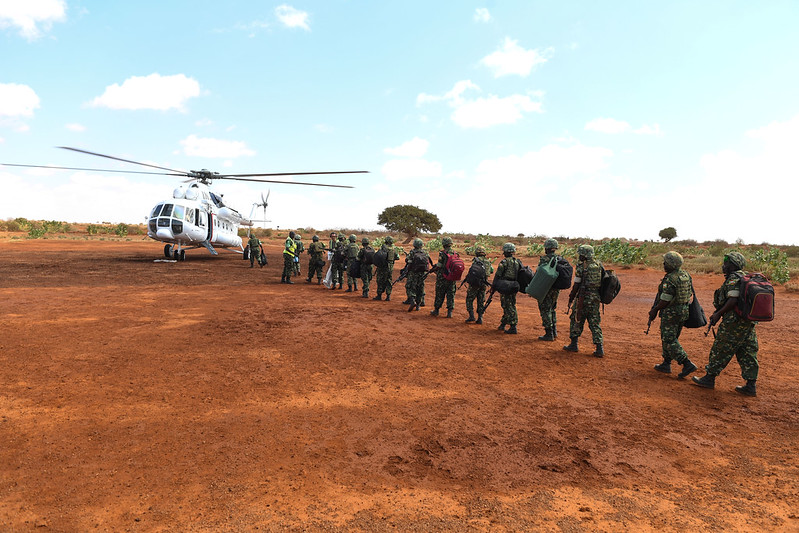Somalia’s national security adviser wrote to the United Nations requesting a 90-day delay in the second phase of a pullout that provides for the departure of 3,000 troops by the end of September, according to the letter.
“The Federal Government of Somalia formally requests a technical pause in the drawdown of the 3,000 African Union Transition in Somalia (ATMIS) uniformed personnel by three months,” it said.
A diplomatic source confirmed the authenticity of the letter and another source close to the issue also told AFP that such a request had been made.
AFP reached out to several Somali government officials, who did not comment.
UN resolutions call for the ATMIS force to be reduced to zero by the end of next year, putting security fully in the hands of the national army and police.
That has proven difficult in the troubled Horn of Africa nation, where AU troops first deployed in 2007 with a six-month mandate, but remain on the ground today.
Somali troops launched a major offensive against the Al-Qaeda affiliated Al-Shabaab in central Somalia in August last year, joining forces with local clan militias in an operation backed by the AU force and US air strikes.
The Islamist militant group has been waging a bloody insurgency to try to overthrow the fragile internationally backed government in Mogadishu for more than 15 years.
Somalia’s President Hassan Sheikh Mohamud took office in May last year vowing “all-out war” against Al-Shabaab, whose fighters were driven from Mogadishu in 2011 but remain a potent force in control of large swathes of the countryside.
Mohamud, who has recently been visiting the frontline, said on August 18 that he believed the government would “eliminate” the jihadists by the end of the year.
‘Stretched thin’
The letter said the government had “managed to re-liberate towns, villages and critical supply routes” since the offensive was launched.
But it said it had suffered “several significant setbacks” since late August after an attack on its forces in the central Galguduud region and subsequent retreats from several towns it had captured from the jihadists.
“This unforeseen turn of events has stretched our military forces thin, exposed vulnerabilities in our frontlines and necessitated a thorough reorganisation to ensure we maintain our momentum in countering the Al-Shabaab threat,” the letter said.
“We hold firm in our belief that this technical pause will, in the long run, contribute to the enduring peace, stability and prosperity of Somalia,” it said, adding that the government remained fully committed to the complete ATMIS drawdown by the end-2024 deadline.
The letter, dated September 19, was addressed to ambassador Ferit Hoxha of Albania, the current UN Security Council president, and signed by Somalia’s national security adviser Hussein Sheikh Ali.
It comes just days after ATMIS announced it had kicked off the second phase of the drawdown, with the projected departure of 3,000 troops by the end of September.
“We have witnessed developments on the battlefield where Somali Security Forces have demonstrated their increasing capability to securing the country,” said Lieutenant Colonel Philippe Butoyi, the ATMIS commander of the base in the south-central state of Hirshabelle that was handed over on September 17.
“We have seen the forces attack, seize and hold ground,” he said in a statement issued that day.
Two thousand AU troops left by the end of the first phase on June 30 and six bases were handed over to Somali forces.
ATMIS was set up in April last year and has a more offensive remit than its predecessor AMISOM, which first deployed to Somalia in 2007.
Before the troop reductions began, ATMIS was made up of about 20,000 uniformed personnel drawn from Burundi, Djibouti, Ethiopia, Kenya and Uganda.
AFP.

